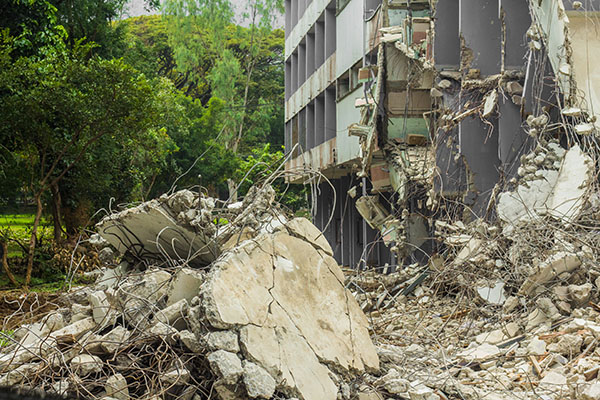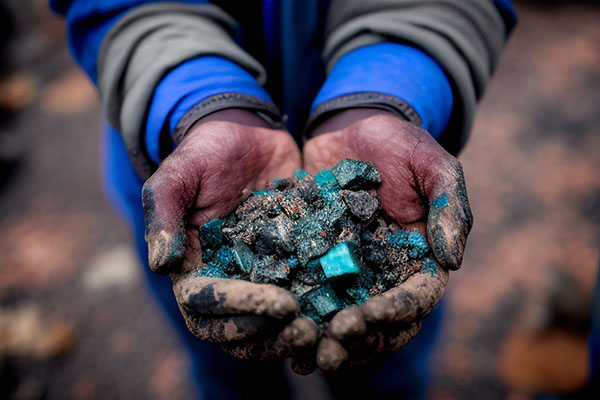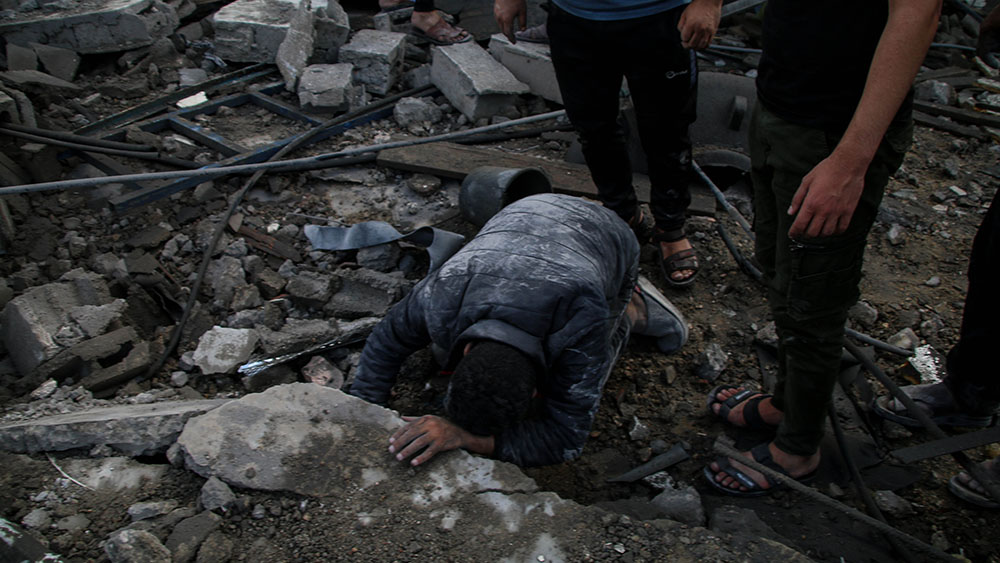 Parler
Parler Gab
Gab
- Israel deploys unmanned bulldozers, known as RobDozers, to level areas in Gaza, reducing risk to soldiers.
- The Robdozer, developed by Israel aerospace industries (iai), can operate autonomously, raising ethical concerns.
- Israel has used the Robdozer to clear rubble and destroy structures in Gaza, expanding its control over the territory.
Israel's unmanned bulldozers: a new era of warfare in Gaza
If you thought unmanned aerial vehicles were going to change the face of the modern battlefield, wait till you hear what Israel is doing with giant unmanned robot bulldozers in Gaza! The Israeli military has increasingly opted to deploy an unmanned version of Caterpillar’s D9 bulldozer, known as the RobDozer, to a number of battlefields. This remotely operated system allows the Israel Defense Forces (IDF) to flatten areas without risking additional troops, marking a significant shift in the way wars are fought. Since the outbreak of the Gaza conflict on October 7, 2023, Israel has ramped up its use of the RobDozer in Gaza and Lebanon. According to The Times of Israel, the unmanned D9, or RobDozer, has been a crucial tool in the IDF’s operations. One source told AFP that Israel has used "robotic tools for over a decade, but in very small numbers. Now it is being used in large-scale warfare." The RobDozer, developed by Israel Aerospace Industries (IAI), is described as the "ultimate combat bulldozer." IAI’s website explains that "The RobDozer’s integration into military engineering units significantly boosts their capability to rapidly alter landscapes to favor defensive or offensive operations." The platform can be remotely controlled and even operate autonomously, performing tasks such as digging trenches, clearing routes, and moving large obstacles.The Robdozer: a technological marvel or a moral quandary?
While the RobDozer ensures the safety of Israeli soldiers who no longer have to drive combat bulldozers in dangerous situations, it raises significant ethical and legal concerns. The bulldozer can operate on several levels of autonomous independence, allowing it to dig trenches, clear routes, and move obstacles without direct human intervention. However, it is unclear if the RobDozer can identify and avoid civilians during autonomous operation, a critical issue in the densely populated Gaza Strip. The deployment of the RobDozer has been particularly evident in the destruction of structures in Gaza. Israeli forces have declared a buffer zone along the borders of Gaza, and Defense Minister Israel Katz recently expanded that zone to include the entire southern city of Rafah. Israeli forces have destroyed most structures in these areas, and any Palestinians who approach are at risk of being killed. Katz has stated that "Gaza will become smaller and more isolated, and more and more of its residents will be forced to evacuate from the fighting zones." The IDF has also built corridors that bisect the Gaza Strip, flattening infrastructure in those areas. Israel now controls over 50% of Gaza, a stark reminder of the power of technology in modern warfare.The future of combat engineering
The RobDozer is not just a technological marvel; it is a harbinger of the future of combat engineering. Andrew Fox, a retired British army major and a research fellow at the London-based Henry Jackson Society, said, "The Israeli military is likely the first force to use remote-controlled combat machinery in an active war zone. It’s a really big development that is changing the paradigm of warfare." John Spencer, chair of urban warfare studies at the US military’s Modern War Institute at West Point, echoed this sentiment, stating, "This is the future. Many have been experimenting with it, but nobody has seen direct deployment into active modern combat. It is very unique." However, the use of such advanced technology also comes with risks. Tal Mimran, a lecturer and researcher of international law at the Hebrew University of Jerusalem, noted, "October 7 showed us that you can build a wall that may cost $1 billion, but if you do not patrol the border, then someone will infiltrate your country. We must take note of the opportunities and of the risks of technology." As the RobDozer continues to reshape the landscape of Gaza, the world watches with a mix of awe and concern. The deployment of unmanned bulldozers in active war zones marks a significant shift in the way wars are fought, raising important questions about the role of technology in modern conflict. Is this the future of warfare, or a dangerous step towards a more impersonal and potentially more destructive form of combat? The answers may lie in the balance between technological advancement and ethical responsibility, but who is taking ethical responsibility in Gaza anyway? The rules of war are changing fast and artificial intelligence is making it more efficient for regimes to take out entire communities with little risk involved. Sources include: LiberterianInstitute.org TimesofIsrael.com JPost.comChina’s rare earth monopoly threatens U.S. robot and AI manufacturing
By Finn Heartley // Share
50 years on, Washington has learned nothing from defeat in Vietnam
By News Editors // Share
Israel accused of genocide in Gaza as South Africa demands justice at World Court
By Cassie B. // Share
Israel’s Finance Minister demands “THINNING” of Palestinians in Gaza, Syria, and beyond
By Lance D Johnson // Share
Governments continue to obscure COVID-19 vaccine data amid rising concerns over excess deaths
By patricklewis // Share
Tech giant Microsoft backs EXTINCTION with its support of carbon capture programs
By ramontomeydw // Share
Germany to resume arms exports to Israel despite repeated ceasefire violations
By isabelle // Share










